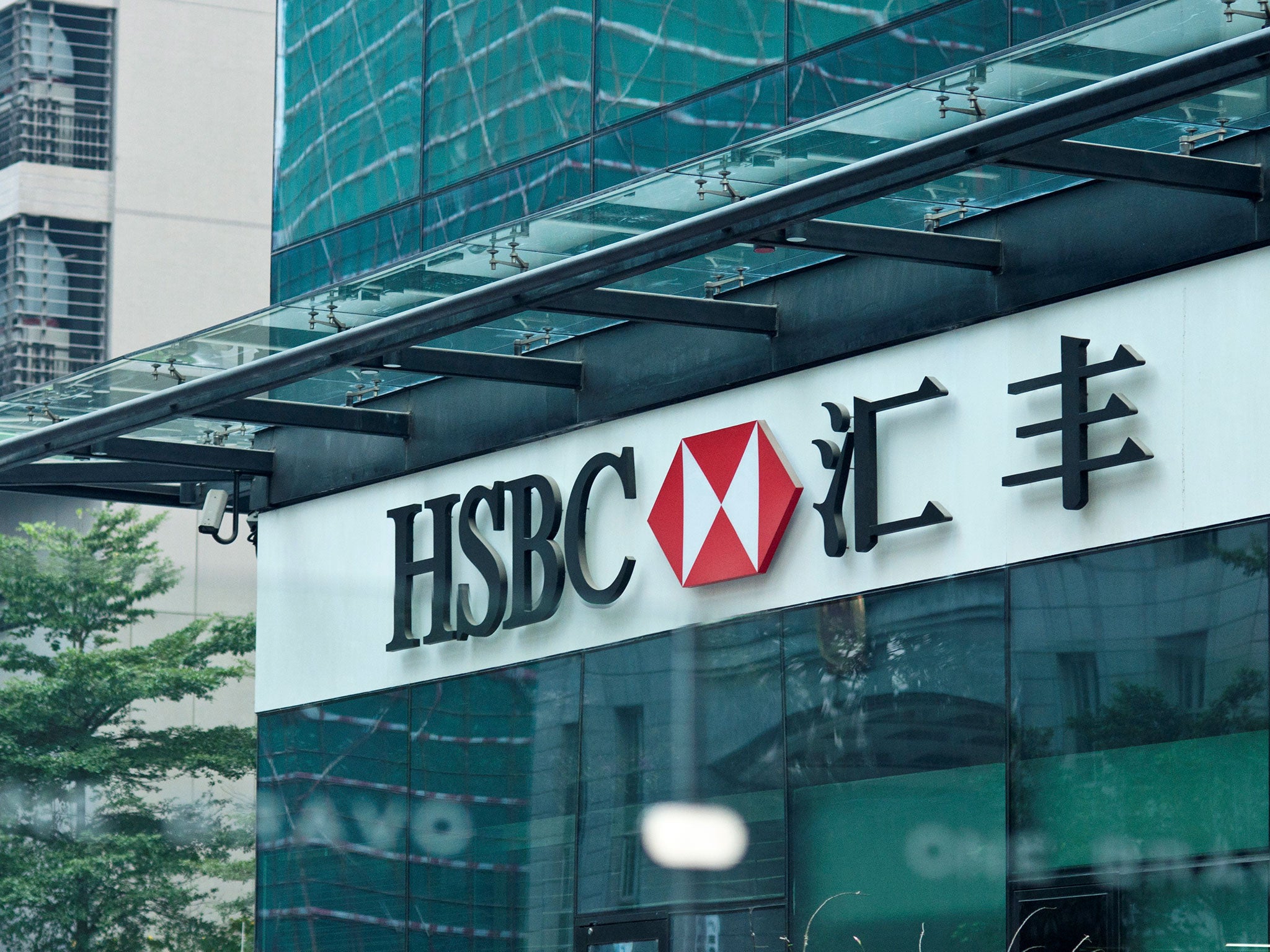HSBC needs to bring in new blood as profits plummet
How you view the latest results depends on whether your glass is half empty or half full, but this is a bank with rather bigger issues to deal with than the latest quarterly numbers

Dreadful. That’s how HSBC’s results looked on the face of it.
Over the first nine months of the year profits fell by nearly half to $10.6bn (£8.5bn) compared with the $19.7bn it made in the first nine months of last year. The third quarter result looked even worse. Pre-tax profits fell by 86 per cent to just $843m.
In most businesses a performance like that would be indicative of a crisis. But HSBC is a really big bank. Time to be scared?
No, because HSBC is a bank, so nothing’s ever as simple as it looks, which is why the shares were jaunty performers on the back of the numbers. HSBC could still be said to be in a crisis of sorts, but not as a result of these numbers.
Part of the reason the headline profits look so bad is because the bank took a large number of one-off hits during the reporting period in question, some of were in the form of accounting losses as opposed to real money. In that former category was the thumping $1.7bn loss on the sale of the bank’s operations in Brazil, and a big negative movement in the value of the bank’s own debt.
Real money losses during the third quarter included a $1bn restructuring charge and another $439m on the payment protection insurance compensation pile.
It is the adjusted numbers that strip all of those out that had the City purring. They showed third quarter profits coming in at $5.6bn, which is 10 per cent better than the consensus of analysts’ forecasts.
Part of the reason is the revival in bond trading that boosted Barclays and many European and US banks with big investment banks.
Investors weren't too fussed about the restructuring charge and the Brazilian bank sale because both are part of chief executive Stuart Gulliver’s plan to cut costs and 25,000 jobs in an attempt to boost returns.
Here’s where the questions come in (and the possible crisis). HSBC still operates in 71 countries. It is a financial conglomerate that has struggled to get a grip on its diverse operations.
If you want evidence, consider the the enormous fine levied by the US as a result of HSBC becoming the bank of choice for Mexican drug lords’ money laundering, and its use by what the US likes to call “rogue regimes" to bust the sanctions.
Then there is the way its Swiss private bank was allegedly used by wealthy individuals to avoid paying their tax, which looks set to result in a trial in France, and perhaps in other territories as well.
Mr Gulliver’s restructuring plan will see the bank focussing on its successful (and quieter) Asian businesses, which were a key part of the bank before it went on a flag planting exercise.
But does the plan go far enough? And are the bank’s structures and processes fit for the purposes of managing what will still be vast institution with something close to a quarter of a million employees around the world after it has been completed? Should HSBC bite the bullet and ditch the ring-fenced UK retail bank? And should it look again at plans to relocate to Hong Kong in the wake of Brexit?
HSBC remains a bank with something of an identity crisis. It isn't quite sure what it wants to be, an Asian powerhouse or global conglomerate with a bit of pruning. Finding an answer to that question isn't going to be a job for Mr Gulliver. He’s likely to be off once a replacement for his chairman Douglas Flint has been found.
David Cumming, the head of UK equities at Standard Life, says the bank needs to bring in new blood from outside the organisation to answer its big questions.
Business news: In pictures
Show all 13He has a point. HSBC has, throughout its history, strongly favoured the home team when it comes to appointing its bosses. Until quite recently, for example, the chief executive used to step up to become chairman as a matter of right. Nobody ever thought to ask whether it was a good idea or not.
Standard Life is a much smaller organisation, but conducted itself in a very similar manner until really quite recently. Its top tier used to be made up of Standard Lifers and the lack of an external perspective, combined with a pompous perception of itself as the best the life insurance industry had to offer, nearly drove the business on to the rocks.
HSBC is a long way from being in the sort of shape Standard Life got itself into before it shook itself up. The bank's very internationalism makes it less insular organisation. But some of the same flaws are there. Mr Cumming might just have the right idea. The answer to HSBC's issues lie outside the bank.
Subscribe to Independent Premium to bookmark this article
Want to bookmark your favourite articles and stories to read or reference later? Start your Independent Premium subscription today.

Join our commenting forum
Join thought-provoking conversations, follow other Independent readers and see their replies